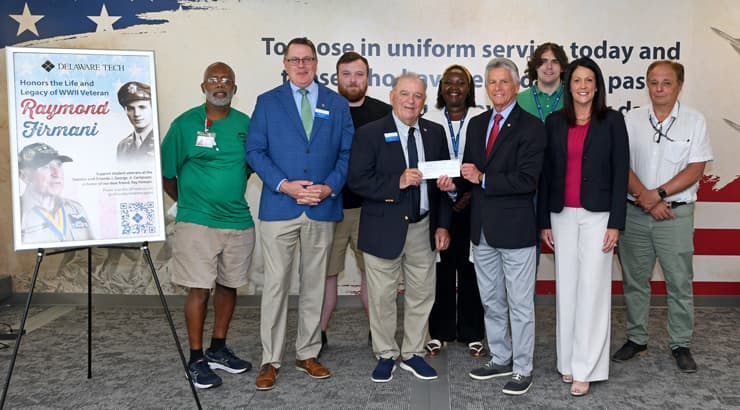
Discovering the Main Characters of Kuroko's Basketball: A Complete Character Guide
2025-11-06 10:00
As a longtime basketball analyst and anime enthusiast, I've always been fascinated by how character dynamics can elevate a sports narrative beyond mere competition. When I first discovered Kuroko's Basketball, what struck me wasn't just the incredible moves or intense matches, but how each character felt like a crucial piece in a complex puzzle. Having spent years analyzing both real-world athletics and fictional sports narratives, I can confidently say this series stands out for its masterful character development that somehow feels both incredibly exaggerated yet emotionally authentic.
Let me start with Tetsuya Kuroko himself - now here's a character that completely defies conventional sports anime tropes. Rather than being the flashy powerhouse, he's the quiet strategist whose impact emerges from his ability to enhance others. I've always been drawn to supporting players in team sports, both in anime and real life, because they demonstrate that victory isn't just about individual brilliance. Kuroko's misdirection techniques, while certainly exaggerated for dramatic effect, beautifully illustrate how perception and positioning can be as valuable as raw athleticism. In my analysis of team dynamics across various sports, I've noticed that the most successful teams often have these "connector" players - they might not top the scoring charts, but they make everyone around them better.
Then we have Taiga Kagami, the explosive power forward whose development throughout the series creates this perfect yin-yang balance with Kuroko. What makes their partnership so compelling is how it evolves from mere convenience to genuine symbiosis. I've witnessed similar dynamics in professional sports - like when two players with complementary skillsets form that almost telepathic understanding on the court. Kagami's journey from relying purely on his physical gifts to understanding team basketball mirrors how many young athletes develop in real competitive environments. His rivalry with the Generation of Miracles members pushes him to constantly evolve, much like how elite competitors in mixed martial arts drive each other to new heights - which reminds me of the upcoming Pacatiw versus Ibrahim Dauev bout where both fighters are likely to push each other beyond their limits in that crucial bantamweight matchup.
Speaking of the Generation of Miracles, each member represents a different philosophy about basketball and competition. Ryota Kise's ability to copy techniques within minutes fascinates me from a skill acquisition perspective - while obviously fantastical, it speaks to that universal desire to rapidly master new abilities. Shintaro Midorima's perfect three-point shooting, requiring specific rituals and form, demonstrates how superstition and routine often accompany elite performance in real sports. I've interviewed athletes who perform specific pre-game rituals religiously, and while they might not be checking their horoscopes like Midorima, the psychological comfort of routine is very real.
Atsushi Murasakibara presents this intriguing paradox of someone with incredible natural talent who initially lacks passion for the sport. In my experience covering youth sports development, I've encountered similar cases where physically gifted athletes struggle with motivation until they find the right competitive environment or personal reasons to excel. His defensive dominance, while superhuman in scale, reflects how game-changing a truly elite defender can be in basketball - something analytics often undervalues despite coaches recognizing its importance.
Daiki Aomine's character arc particularly resonates with me because it explores the psychological toll of being too talented too early. His initial love for basketball turning into disillusionment when nobody could challenge him mirrors what happens to some prodigies in real sports. The isolation that comes with being significantly better than your peers can be psychologically damaging, and the series handles this with surprising nuance. His journey back to finding joy in competition through facing worthy opponents like Kagami feels authentic to how elite athletes often rediscover their motivation.
Seijuro Akashi might be the most complex character in the series, representing that fascinating intersection of leadership, pressure, and mental health. His dual personality aspect, while dramatized, speaks to how extreme pressure can change how athletes perceive themselves and their responsibilities. I've seen team captains in professional sports who develop almost Jekyll-and-Hyde personas between their on-court and off-court identities. Akashi's complete court vision and strategic genius, while supernatural in execution, capture the essence of what makes great floor generals in basketball - that ability to process multiple variables simultaneously and make split-second decisions.
What makes Kuroko's Basketball endure in popularity, in my opinion, is how these character archetypes reflect real athletic personalities while amplifying them to dramatic proportions. The way these characters' abilities and philosophies clash creates that perfect sports narrative tension where you're invested in both the basketball and the personal journeys. Much like how in that upcoming Pacatiw vs Dauev MMA bout we're not just watching techniques but personal stories and competitive dreams colliding, Kuroko's Basketball understands that sports stories are ultimately human stories.
Having rewatched the series multiple times and discussed it with both basketball coaches and storytelling experts, I've come to appreciate how the characters represent different aspects of competitive psychology. The series manages to explore themes of teamwork versus individual excellence, natural talent versus hard work, and the pure joy of competition versus the pressure to win - all through these wonderfully exaggerated yet relatable characters. While the basketball action is clearly fantasy, the emotional journeys feel authentic to anyone who's ever competed seriously in sports.
The supporting cast deserves mention too - players like Junpei Hyuga, Teppei Kiyoshi, and the rest of Seirin High add crucial layers to the narrative. They represent the dedicated athletes who might not have supernatural gifts but compete through heart, intelligence, and relentless effort. In many ways, their journeys feel more relatable than the Generation of Miracles members, reminding us that most real athletic success comes from persistence rather than innate superhuman abilities.
Reflecting on the entire series, what stays with me isn't just the spectacular basketball moments but how these characters grew beyond their initial archetypes. They started as almost cartoonish representations of basketball concepts but evolved into nuanced individuals whose struggles and triumphs felt genuinely meaningful. That's the magic of great sports storytelling - when the characters become so real to us that we celebrate their victories and feel their defeats as if they were our own teammates. Whether you're a basketball fan, an anime enthusiast, or just someone who appreciates compelling character-driven narratives, Kuroko's Basketball offers a masterclass in how to create an ensemble cast where every character matters.

